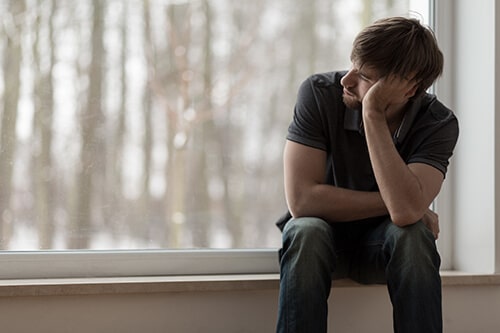Benzo Withdrawal Symptoms
What Causes Benzo Withdrawal Symptoms?

Benzos act on particular neurotransmitters of the brain. Moreover, they depress an overage of some activities, which enables anxiety sufferers to function better. After a while, your brain chemistry comes to rely on the presence of these medications. Therefore, you need them to regulate neurotransmitter activity.
However, there’s another reason for developing withdrawal symptoms. If you’ve been taking the drugs recreationally, you’ve been overdoing the dosage considerably. You’re probably chasing the euphoric high that some people report. You, too, are allowing benzos to change your brain chemistry.
What Withdrawal Symptoms Feel Like
Whether it’s Valium or Xanax withdrawal, or something else, look for the first withdrawal symptoms soon after the last dose. In fact, benzo withdrawal symptoms typically start with an inability to sleep and relax. You’re feeling anxious. If you’re struggling with anxiety, you may notice a severe increase in panic attacks.
You have headaches and feel like you’re coming down with a bad flu. In severe cases, you may be dealing with feelings of aggression. You have a difficult time controlling your temper. Therefore, it doesn’t take much to set you off.
Medically Supervised Detoxification Helps You Overcome Symptoms
Of course, you don’t have to suffer any longer. Undergo benzo withdrawal at a detox facility. Doing so ensures your physiological safety, as well as your comfort. For starters, you don’t have to worry about pain.
Pharmacological support helps with the discomfort and the erratic physical side effects that come with quitting the drug. Moreover, you also work with therapists who reaffirm your decision to stop using the medication. If you haven’t gotten a diagnosis of anxiety before, they’ll assess you for a co-occurring mental health disorder. Specifically, this step influences the remainder of your treatment.
Dual Diagnosis in Treatment
Starting in detox, you need treatment for your co-occurring psychiatric condition. Because it’s a possible trigger for addiction, managing it while in detox and later rehab makes sense. Therapists customize a treatment approach for you. For example, modalities include:- Cognitive behavioral therapy
- Group therapy
- Talk therapy
- Family therapy
- Ongoing medical monitoring
Why Continue with Rehab after Benzo Withdrawal?
It’s tempting to call it a day after detox. However, why should you undergo addiction treatment programs in rehab when you no longer feel the physiological need to use? The answer lies in your psychological makeup. You only broke the physical hold that the drug had on you.
You haven’t dealt with the triggers that made you susceptible to drug abuse. Therefore, it’s possible to fall back into the habit of using when you encounter these situations. At rehab, you learn how to deal with them. You also learn how to prevent them from occurring.
Overcome benzo withdrawal symptoms and the cravings with the help of professionals. At Silver Pines Treatment Center, caring staff members work with people just like you. They can assist you with quitting the right way. Call 267.209.7313 today to learn more about our programs.